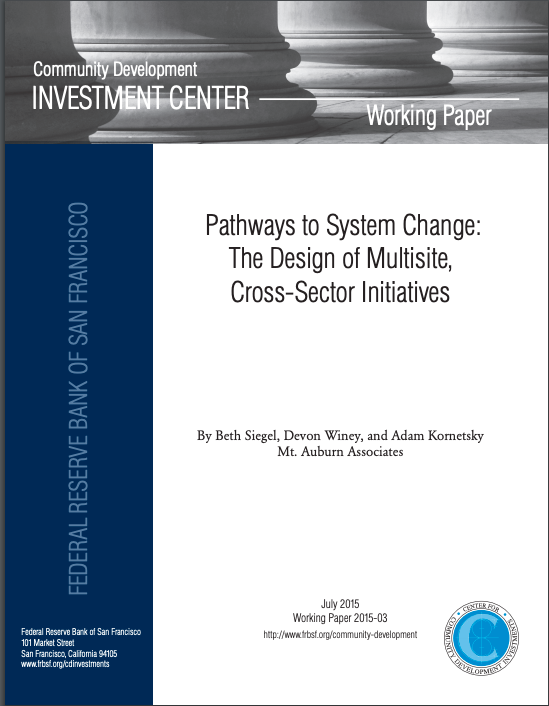
This report examines efforts by some of the nation’s leading foundations and community development practitioners, providing a guide for funders as they consider launching similar initiatives as well as helpful lessons for others engaged in cross-sector work.
Through a comprehensive literature review, interviews with key project evaluators and funders, a recap of a December 2014 roundtable discussion, and the authors’ significant expertise, this report provides detailed descriptions of “what works” and “pitfalls” in its analysis of design elements and project parameters of both past and current multi-site initiatives. The paper provides insights into the design and implementation of place-based efforts for community development practitioners, financial institutions, and other organizations, such as health care payers, who are involved in site-specific initiatives seeking to improve the economic well-being of low-income residents.

 Back to Resources
Back to Resources